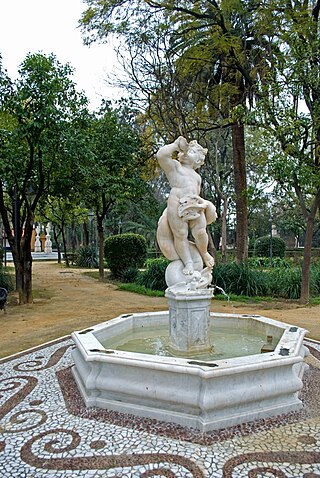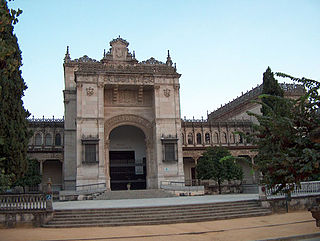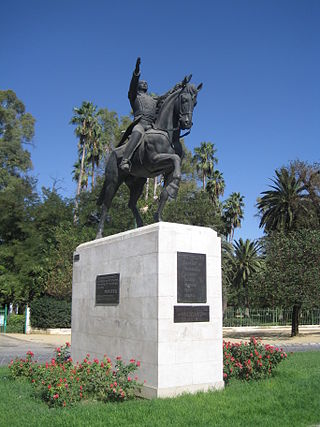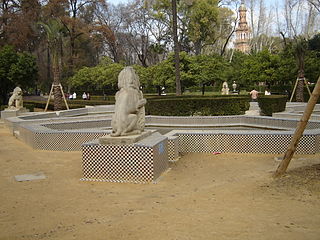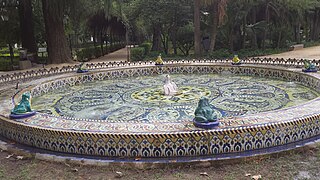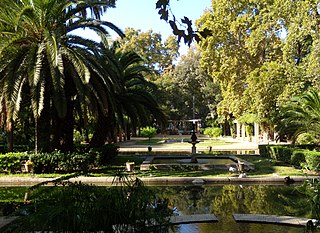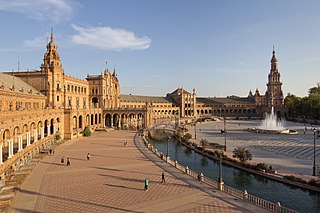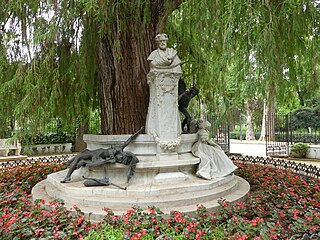Self-guided Sightseeing Tour #1 in Seville, Spain
Legend
Guided Free Walking Tours
Book free guided walking tours in Seville.
Guided Sightseeing Tours
Book guided sightseeing tours and activities in Seville.
Tour Facts
2.6 km
42 m
Experience Seville in Spain in a whole new way with our free self-guided sightseeing tour. This site not only offers you practical information and insider tips, but also a rich variety of activities and sights you shouldn't miss. Whether you love art and culture, want to explore historical sites or simply want to experience the vibrant atmosphere of a lively city - you'll find everything you need for your personal adventure here.
Activities in SevilleIndividual Sights in SevilleSight 1: Jardin de las Delicias
The Delicias Gardens are a green area of Seville, located on the Paseo de las Delicias in front of the María Luisa Park and adjacent to the Delicias Pier.
Sight 2: Archaeological Museum of Seville
The Archeological Museum of Seville is a museum in Seville, southern Spain, housed in the Pabellón del Renacimiento, one of the pavilions designed by the architect Aníbal González. These pavilions at the Plaza de España were created for the Ibero-American Exposition of 1929.
Sight 3: Plaza de América
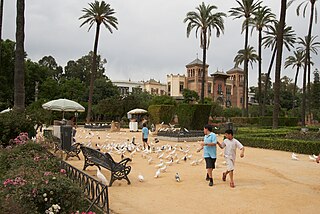
The Plaza de América, located in the Parque de María Luisa, was built by architect Aníbal González for the Ibero-American exhibition of 1929. The Plaza is flanked by three buildings, also built by González for the exhibition, in three distinct architectural styles: the Museum of Popular Arts (Neomudéjar), the Archaeological Museum (Neo-Renaissance), and the Royal Pavilion (Gothic).
Sight 4: Monumento a Simón Bolivar
The monument to Simón Bolívar is an equestrian statue that represents the Venezuelan soldier and politician Simón Bolívar (1783-1830), and is located on the Paseo de las Delicias in the city of Seville. It is the work of Emilio Laiz Campos and was inaugurated in 1981 by Juan Carlos I of Spain and Sofia of Greece, with the presence and words of former Venezuelan President Rafael Caldera.
Sight 5: Fuente de los Leones
The Garden of the Lions or Fountain of the Lions is in the park of María Luisa, Seville, Andalusia, Spain. It dates from 1928.
Sight 6: Fuente de las Ranas
The Fountain of the Frogs is an urban fountain in Spain located in the María Luisa Park in Seville, it is the oldest fountain in the entire enclosure, dating from 1914, when what used to be the San Telmo gardens began to become a park.
Sight 7: Maria Luisa Park
The Parque de María Luisa is a public park that stretches along the Guadalquivir River in Seville, Spain. It is Seville's principal green area.
Sight 8: Aníbal González
Aníbal González may refer to:Aníbal González, Chilean football forward Aníbal González, Mexican football forward, and son of footballer born 1964 Aníbal González Álvarez-Ossorio (1876–1929), Spanish architect
Sight 9: Fuente Plaza de España
The Plaza de España is a plaza in the Parque de María Luisa, in Seville, Spain. It was built in 1928 for the Ibero-American Exposition of 1929. It is a landmark example of Regionalism Architecture, mixing elements of the Baroque Revival, Renaissance Revival and Moorish Revival (Neo-Mudéjar) styles of Spanish architecture.
Sight 10: Plaza de España
The Plaza de España is a plaza in the Parque de María Luisa, in Seville, Spain. It was built in 1928 for the Ibero-American Exposition of 1929. It is a landmark example of Regionalism Architecture, mixing elements of the Baroque Revival, Renaissance Revival and Moorish Revival (Neo-Mudéjar) styles of Spanish architecture.
Sight 11: Monumento a Gustavo Adolfo Bécquer
The Bécquer roundabout is located in the María Luisa park, Seville, Andalusia, Spain. In it, around a cypress tree of the swamps, there is a monument in white marble and bronze dedicated to the poet Gustavo Adolfo Bécquer.
Sight 12: Casa de la Ciencia de Sevilla
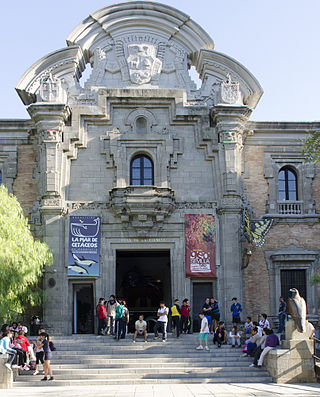
La Casa de la Ciencia in the city of Seville, Spain is a centre for popularizing science.
Share
How likely are you to recommend us?
Disclaimer Please be aware of your surroundings and do not enter private property. We are not liable for any damages that occur during the tours.
GPX-Download For navigation apps and GPS devices you can download the tour as a GPX file.
